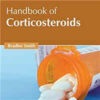Fluid Management Impact on Outcomes in Sequential Extracorporeal Support
karger.comSepsis is a life-threatening condition characterized by dysregulated inflammatory responses, often leading to multiple organ dysfunction and high mortality rates.
Continuous renal replacement therapy (CRRT) and extracorporeal blood purification therapies have emerged as vital adjuncts to manage fluid overload and modulate immune responses in septic shock.
This study evaluates the impact of daily fluid balance variation on 90-day mortality and hospital length of stay in ICU patients undergoing CRRT for septic shock with endotoxin activity.
Careful and tailored fluid management in CRRT is essential for improving survival rates and clinical outcomes in septic shock patients. Continuous monitoring of fluid dynamics is necessary to optimize hemodynamic stability and avoid complications.
Future multicenter studies are needed to validate these findings and refine fluid management protocols.
A post hoc analysis of the EUPHAS 2 project was conducted on 61 ICU patients with non-responsive endotoxin shock at San Bortolo Hospital (2016–2021).
Bayesian joint models assessed the relationship between fluid balance and mortality.
Mediation analysis explored the impact of CRRT on mechanical ventilation duration and hospital stay.

















